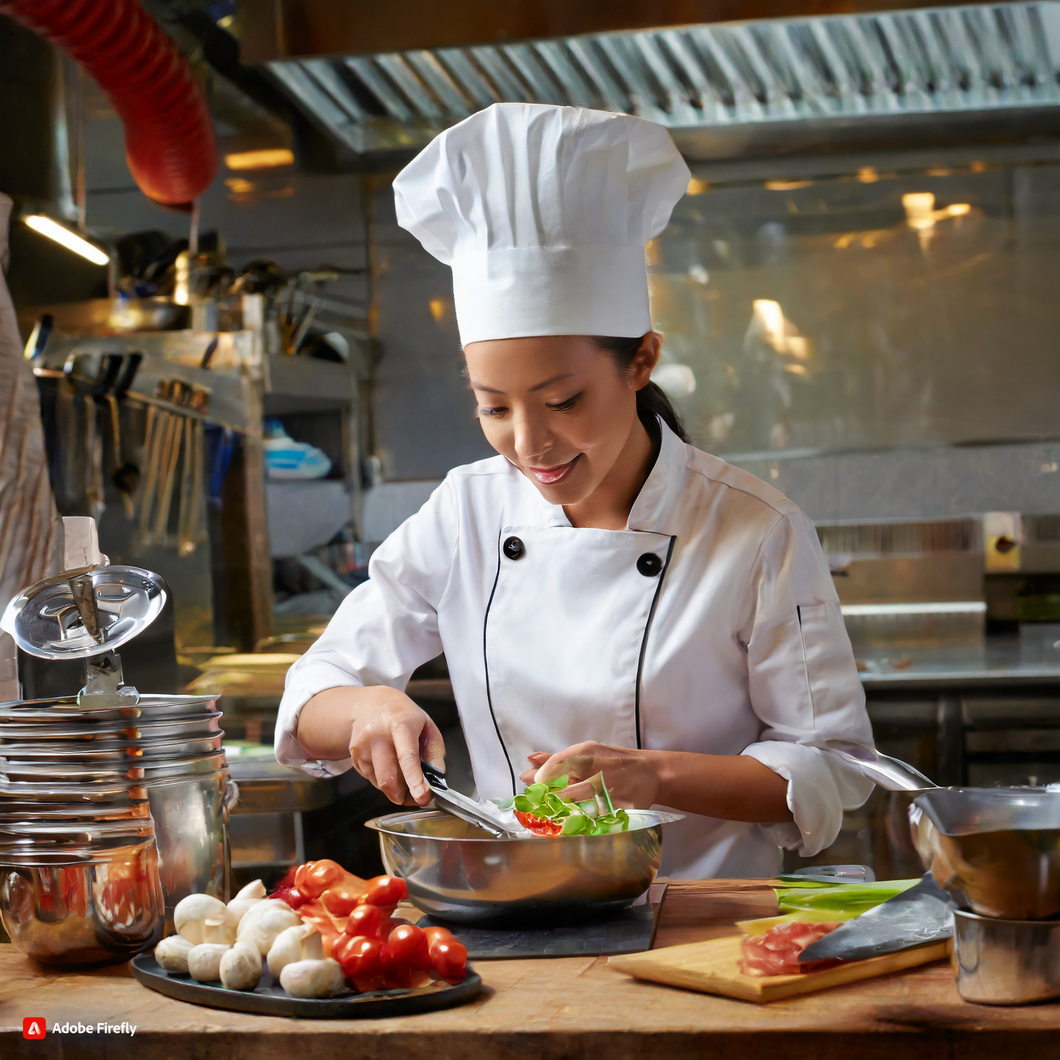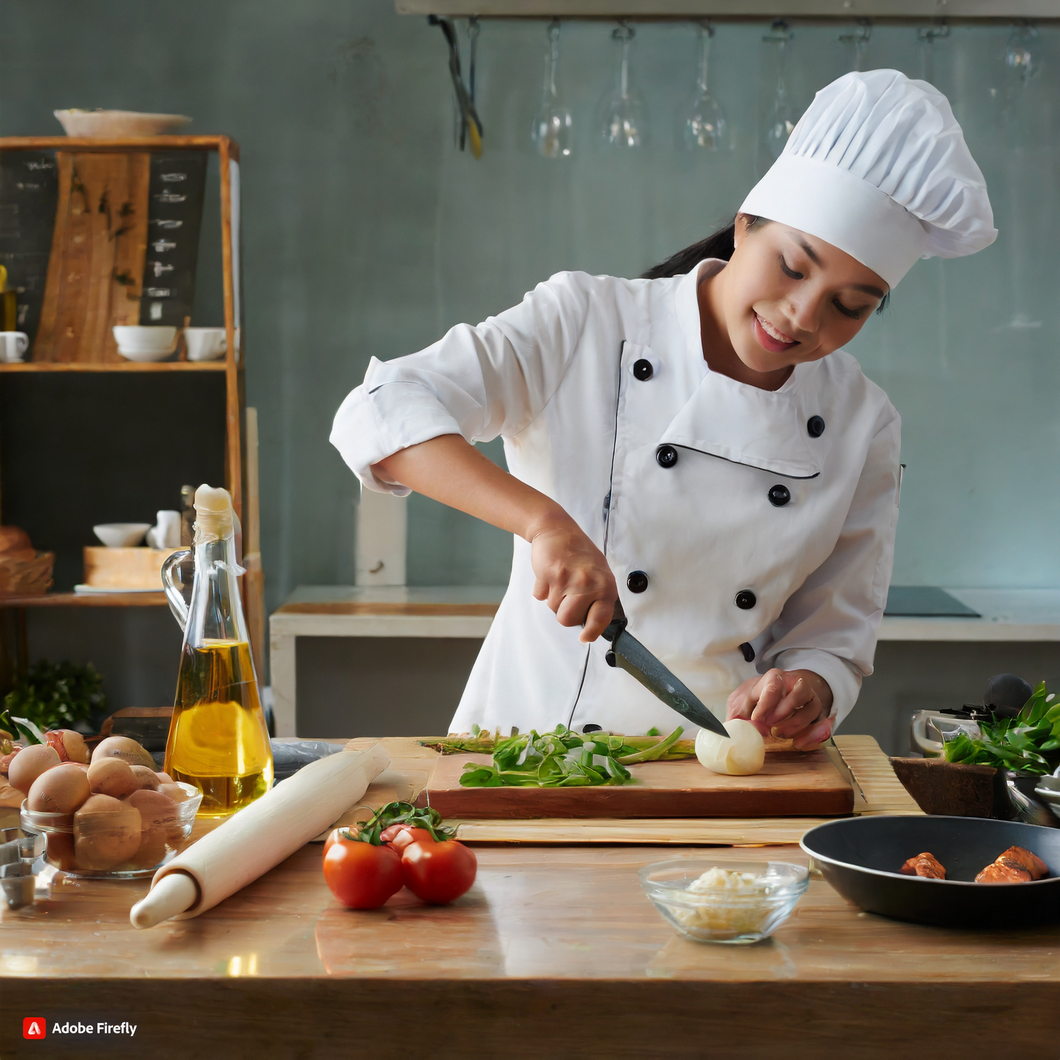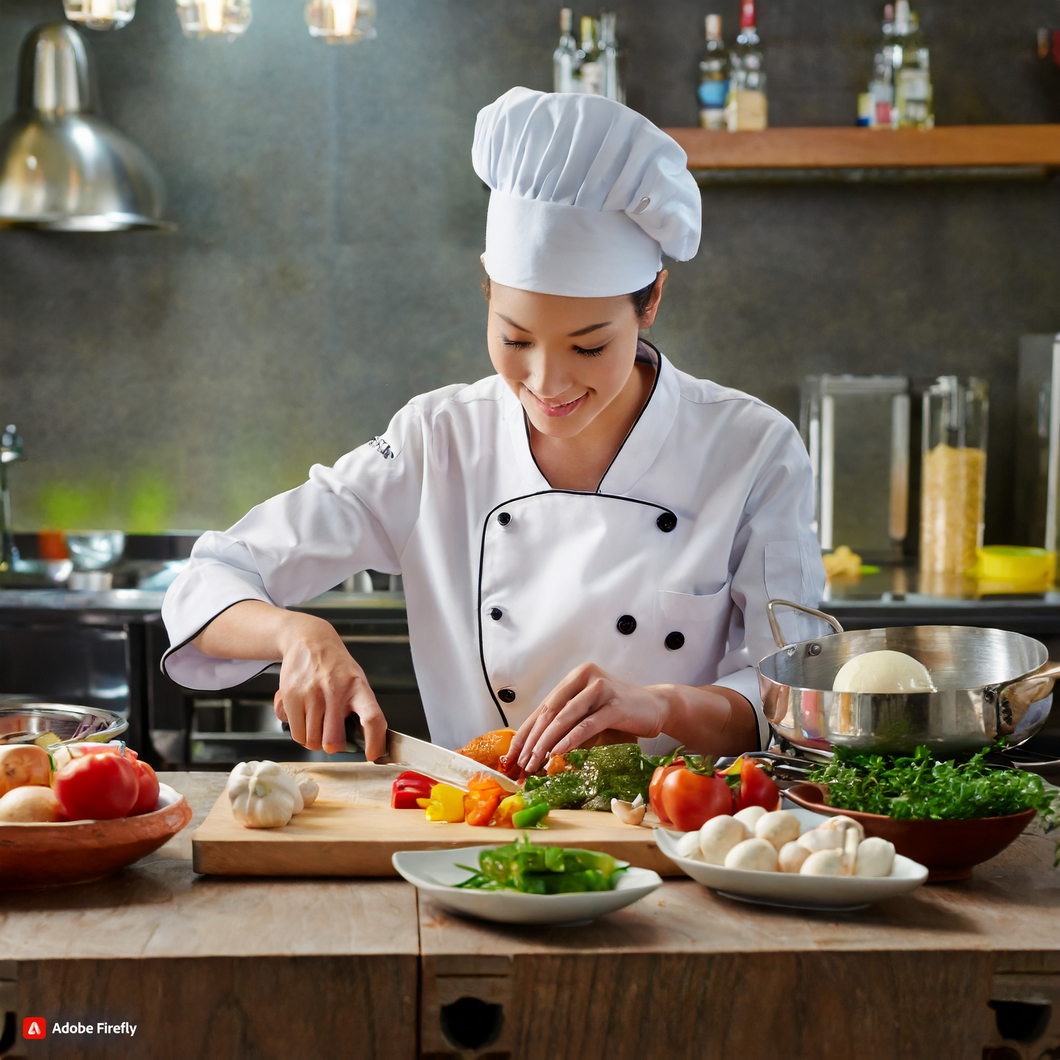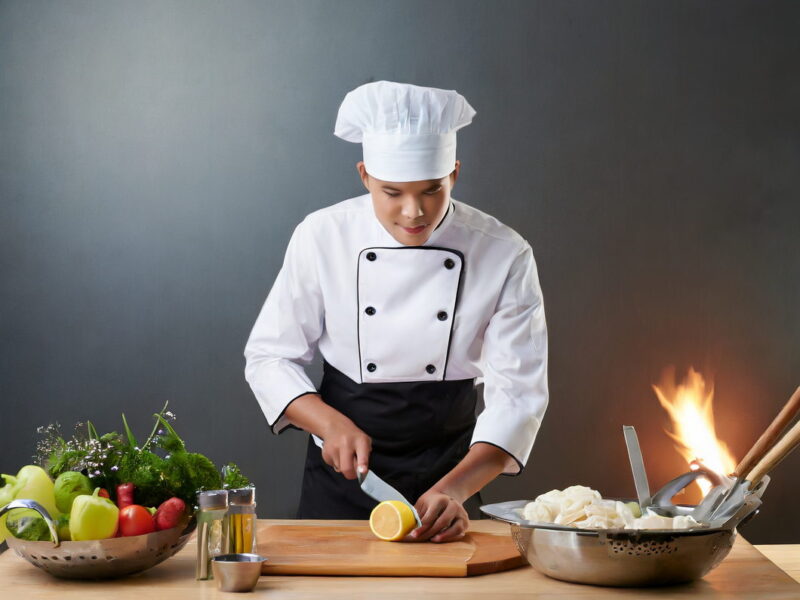Introduction
Cooking is an essential life skill that everyone should have. Not only does it provide nourishment and sustenance, but it also allows for creativity and self-expression in the kitchen. However, for beginners, cooking can seem daunting and overwhelming. That’s where Cooking Skills Mastery comes in. This comprehensive beginner’s guide is designed to help individuals develop and improve their cooking skills, from basic techniques to more advanced recipes. With step-by-step instructions, helpful tips, and delicious recipes, this guide will empower beginners to become confident and skilled cooks in no time. Whether you’re a complete novice or looking to enhance your existing skills, Cooking Skills Mastery is the perfect resource to help you on your culinary journey.
5 Essential Cooking Techniques Every Beginner Should Master

Cooking is an essential life skill that everyone should have. Not only does it allow you to create delicious and healthy meals for yourself and your loved ones, but it also gives you a sense of accomplishment and satisfaction. However, for beginners, cooking can seem like a daunting task. With so many ingredients, tools, and techniques to learn, it can be overwhelming. But fear not, with a little bit of practice and patience, anyone can become a master in the kitchen. In this article, we will discuss the 5 essential cooking techniques that every beginner should master.
1. Knife Skills
The first and most important technique to master in the kitchen is knife skills. A sharp and well-maintained knife is a chef’s best friend. It is essential to learn how to hold a knife properly and how to use it to chop, slice, and dice ingredients. Start by investing in a good quality chef’s knife and practice cutting different types of vegetables and fruits. Remember to always keep your fingers curled under and use a rocking motion to cut. With time and practice, you will become more comfortable and efficient with your knife skills.
2. Sautéing
Sautéing is a cooking technique that involves cooking food quickly in a small amount of fat over high heat. It is a great way to cook vegetables, meats, and seafood. To sauté, heat a small amount of oil or butter in a pan over medium-high heat. Once the oil is hot, add your ingredients and stir constantly to prevent them from burning. This technique allows for quick and even cooking, resulting in delicious and flavorful dishes.
3. Roasting
Roasting is a dry heat cooking method that is perfect for cooking meats, vegetables, and even fruits. It involves cooking food in the oven at a high temperature, usually between 375-450 degrees Fahrenheit. To roast, place your ingredients on a baking sheet and drizzle with oil, salt, and pepper. Make sure to spread them out evenly to ensure even cooking. Roasting brings out the natural flavors of the ingredients and creates a crispy and caramelized exterior.
4. Boiling
Boiling is a simple yet essential cooking technique that every beginner should master. It involves cooking food in a liquid, usually water, at a high temperature. Boiling is commonly used to cook pasta, rice, and vegetables. To boil, bring a pot of water to a rolling boil and add your ingredients. Make sure to keep an eye on the pot and stir occasionally to prevent sticking. Boiling is a quick and easy way to cook food and is perfect for busy weeknights.
5. Braising
Braising is a cooking technique that involves cooking food in a small amount of liquid over low heat for an extended period. It is perfect for tougher cuts of meat and results in tender and flavorful dishes. To braise, start by searing your meat in a pan to create a golden crust. Then, add a small amount of liquid, such as broth or wine, and let it simmer on low heat for a few hours. The slow cooking process allows the flavors to develop and results in a melt-in-your-mouth texture.
In conclusion, mastering these 5 essential cooking techniques will not only make you a better cook but also give you the confidence to try new recipes and experiment in the kitchen. Remember, practice makes perfect, so don’t be afraid to make mistakes and keep trying. With time and patience, you will become a cooking pro in no time. Happy cooking!
The Importance of Knife Skills in Cooking: Tips and Tricks for Beginners
Cooking is an essential life skill that everyone should have. Not only does it allow you to create delicious and healthy meals, but it also gives you a sense of independence and accomplishment. However, for beginners, the thought of cooking can be intimidating, especially when it comes to using knives. Many people are afraid of using knives in the kitchen, but mastering knife skills is crucial in becoming a confident and efficient cook. In this article, we will discuss the importance of knife skills in cooking and provide some tips and tricks for beginners to help them overcome their fear and become masters in the kitchen.
First and foremost, having good knife skills is essential for safety in the kitchen. Using a knife incorrectly can lead to accidents and injuries. By learning proper knife techniques, you can minimize the risk of cutting yourself and handle knives with confidence. It is crucial to hold the knife correctly, with your index finger and thumb gripping the blade and your other fingers wrapped around the handle. This grip gives you better control and stability while cutting.

Another reason why knife skills are crucial in cooking is that they save time and make the cooking process more efficient. When you have good knife skills, you can chop, slice, and dice ingredients quickly and evenly. This not only saves time but also ensures that your food cooks evenly, resulting in a better-tasting dish. On the other hand, if you struggle with using knives, it can take you a long time to prepare ingredients, and they may not be cut evenly, affecting the overall taste and presentation of your dish.
Now that we have established the importance of knife skills in cooking, let’s discuss some tips and tricks for beginners to help them improve their skills. The first tip is to invest in a good quality chef’s knife. A sharp and sturdy chef’s knife is a must-have in any kitchen. It will make your cutting tasks more manageable and safer. Make sure to keep your knife sharp by regularly honing and sharpening it. A dull knife can be more dangerous than a sharp one as it requires more force to cut, increasing the risk of accidents.
Next, practice makes perfect. Start with simple tasks like chopping vegetables and fruits. As you become more comfortable, you can move on to more challenging tasks like deboning a chicken or filleting a fish. It is essential to have a stable cutting board and a damp towel underneath to prevent it from slipping. Also, make sure to use the right knife for the task at hand. A paring knife is best for small and delicate tasks, while a serrated knife is ideal for slicing bread and tomatoes.
Another tip is to use the claw grip when cutting. This technique involves curling your fingers inwards, using your knuckles as a guide for the knife. This grip not only protects your fingers but also gives you better control over the knife, resulting in more precise cuts. It may feel awkward at first, but with practice, it will become second nature.
Lastly, don’t be afraid to experiment and try new techniques. There are various cutting techniques like julienning, chiffonading, and dicing that can elevate your cooking skills and make your dishes look more professional. You can find tutorials and videos online to help you learn these techniques. Remember, practice and patience are key to mastering any skill, including knife skills.
In conclusion, mastering knife skills is crucial in becoming a confident and efficient cook. It not only ensures safety in the kitchen but also saves time and improves the taste and presentation of your dishes. By investing in a good quality knife, practicing regularly, and using proper techniques, beginners can overcome their fear of using knives and become masters in the kitchen. So don’t be afraid to pick up that knife and start honing your skills. Happy cooking!
From Basic to Advanced: How to Build Your Cooking Skills and Confidence in the Kitchen
Are you tired of ordering takeout or relying on pre-packaged meals? Do you want to impress your friends and family with your cooking skills? Look no further, because this comprehensive beginner’s guide will help you build your cooking skills and confidence in the kitchen.
Cooking can seem intimidating, especially for beginners. But with the right guidance and practice, anyone can become a master in the kitchen. So let’s start from the basics and work our way up to advanced techniques. Read The Beginner’s Culinary Journey.
First and foremost, it’s important to have the right tools in your kitchen. A good set of knives, pots and pans, and cooking utensils are essential for any cook. Invest in quality tools that will last you a long time and make your cooking experience easier and more enjoyable.
Next, familiarize yourself with basic cooking techniques such as chopping, sautéing, and boiling. These techniques are the building blocks of cooking and will be used in almost every recipe. Practice these techniques until you feel comfortable and confident.

Now, let’s move on to the most important aspect of cooking – ingredients. As a beginner, it’s important to start with simple recipes that use few ingredients. This will help you understand the flavors and textures of different ingredients and how they work together. As you become more comfortable, you can start experimenting with more complex recipes and ingredients.
One of the best ways to improve your cooking skills is to follow recipes. They provide step-by-step instructions and measurements, making it easier for beginners to understand and follow. Start with simple recipes and gradually move on to more challenging ones. Don’t be afraid to make mistakes, as they are a part of the learning process.
Another important aspect of cooking is understanding flavors and seasonings. Experiment with different herbs, spices, and sauces to enhance the taste of your dishes. Don’t be afraid to try new combinations and trust your taste buds. Remember, cooking is all about creativity and personal preference. Read easy Healthy Lunch for Weight Loss.
As you become more comfortable in the kitchen, start exploring different cuisines. This will not only expand your cooking skills but also introduce you to new flavors and ingredients. You can start with simple dishes like pasta or stir-fry and then move on to more complex dishes like curries or soufflés.
Now, let’s talk about presentation. A well-presented dish not only looks appetizing but also shows your attention to detail. Invest in some basic plating tools like a piping bag or a food ring to make your dishes look more professional. And don’t forget to garnish your dishes with fresh herbs or a sprinkle of spices for that extra touch.
Lastly, don’t be afraid to ask for help or take cooking classes. Learning from experienced cooks or chefs can greatly improve your skills and give you new ideas. You can also join online cooking communities or watch cooking shows for inspiration and tips.
In conclusion, cooking is a skill that takes time and practice to master. Start with the basics, familiarize yourself with ingredients and techniques, and don’t be afraid to experiment. With dedication and a positive attitude, you can become a confident and skilled cook in no time. So put on your apron, turn on some music, and let’s get cooking!
Q&A – Skills Mastery Guide
Q: What is the purpose of a cooking Skills Mastery Guide?
A: The purpose of a cooking Skills Mastery Guide is to provide beginners with a comprehensive and structured approach to learning and improving their cooking skills.
Q: What are some key skills that a beginner can expect to learn from a cooking Skills Mastery Guide?
A: A cooking Skills Mastery Guide can teach beginners a variety of skills, including basic knife skills, cooking techniques, flavor pairing, and meal planning.
Q: Is a cooking Skills Mastery Guide suitable for experienced cooks as well?
A: Yes, a cooking Skills Mastery Guide can also be beneficial for experienced cooks as it can help them refine their skills, learn new techniques, and expand their culinary knowledge.
Conclusion for Skills Mastery Guide
In conclusion for Skills Mastery Guide, Cooking Skills Mastery: A Comprehensive Beginner’s Guide is a valuable resource for those looking to improve their cooking abilities. This guide covers everything from basic techniques to more advanced skills, making it suitable for beginners and experienced cooks alike. By following the step-by-step instructions and practicing the recipes provided, readers can develop a strong foundation in cooking and gain confidence in the kitchen. With its comprehensive approach and easy-to-follow format, this guide is a must-have for anyone looking to master the art of cooking.
Please follow us on linkedin. You can learn all best canadian food recipes you can check our Culinary 1TouchFood Youtube and Telegram 1TouchFood page. Don’t forget Fighting Obesity Magazine and Radio Cooking.

